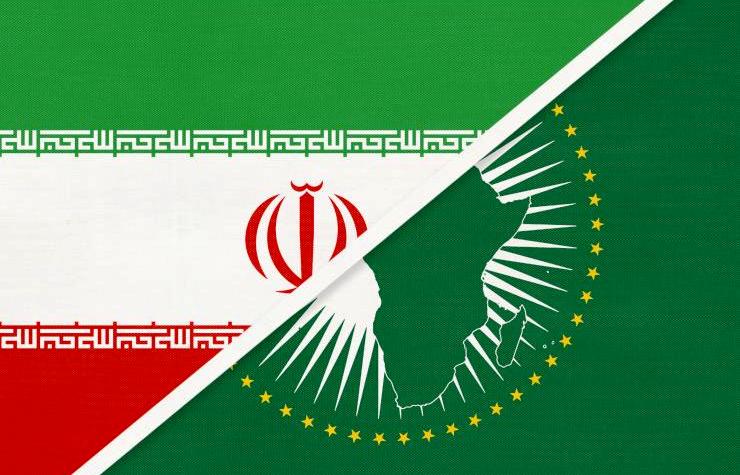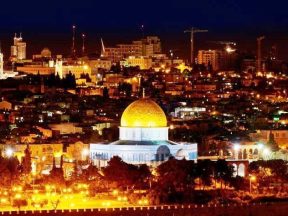Iran returns to Africa.

Three countries visited. Cooperation contracts. The intention is to get out of a state of political and economic isolation imposed
by Western sanctions.
Last 12 and 13 July, a delegation, made up of the Minister of Foreign Affairs Mohammad Javad Zarif and businessmen and led by the Iranian President Ebrahim Raisi, visited the African continent, after an absence of almost a decade, considering the last visit by an Iranian leader date back to 2013. Raisi’s African tour was divided into three stages, which took place first in Kenya, then in Uganda, and finally in Zimbabwe.
After joining the Shanghai Cooperation Organisation (SCO) and the recent visit to Latin America, the tour of Africa appears as a further attempt undertaken by the Iranian leadership to emerge from the condition of political and economic isolation imposed by Western sanctions. The aim is to propose a multipolar alternative to the Euro-Atlantic centric order, driven by Washington, which could be realized in the Global South movement and in the BRICS countries, of which
Iran now is part.
To date, trade relations are very limited between Africa and Iran, estimated at only $1.27 billion in trade. During the visit, Foreign Minister Zarif stated that Iran’s goal is to increase the volume of trade with Africa up to 2 billion which, however, would represent less than one percent of the total African trade exchange.
The visit to Kenya concluded with the signing of a package of five memoranda, covering the sectors of information and communication technologies (ICT), fishing, livestock farming, and investment promotion. However, commercial relations between Nairobi and Tehran have been substantially underdeveloped, considering that, in 2021, trade amounted to just over 50 million dollars.
As the main economy of the East African Community (made up of Kenya, Tanzania, Uganda, Burundi, and Rwanda), Nairobi would allow Iranian goods to reach the wider regional free trade area. At the same time, Tehran, in addition to committing itself to opening a car factory in the country, could also offer its expertise to Kenya in the nuclear sector, in which the country has encountered difficulties in starting its own production. Overall, Kenyan President Ruto’s decision to host Raisi has attracted particular interest due to Nairobi’s historic closeness to the United States and Europe, as demonstrated by the recent Economic Partnership Agreement with the EU.
The tour of the Iranian delegation continued in Uganda, where Raisi met President Yoweri Museveni who, after promulgating an anti-LGBT law last May, risks facing sanctions from the United States, a country with which relations have been excellent until the Biden presidency. During the visit, Raisi and Museveni decided to deepen cooperation between the two countries in some sectors, including that of oil. In fact, Tehran has offered its support in the construction of an oil refinery, with a production capacity of around 60,000 barrels per day, and a national oil pipeline, harshly criticized by Brussels due to its environmental impact.
Finally, Raisi travelled to Zimbabwe, with which Tehran boasts a historical bond that has its roots in Iranian support for Harare’s war of independence in the 1970s. In addition to attacking the West for the decision to sanction both countries, the President of Zimbabwe, Emmerson Mnangagwa, agreed with his Iranian counterpart on 12 memoranda relating to cooperation in the energy, agriculture, pharmaceutical and telecommunications sectors.
Despite the difficult economic conditions in the country (annual inflation at 175% and an expected drop in GDP of 3.5% in 2023), Zimbabwe, almost entirely dependent on hydrocarbon imports, could fill Iran’s shortages of some resources, through the supply of critical minerals, including gold, platinum, and lithium, in which Harare is rich.
In conclusion, Raisi’s visit should be interpreted as an attempt to relieve Tehran’s economic pressure and political isolation, through a renewed interest in the Global South which, in the future, could play an important role on the international scene. It can be hypothesized that not only African countries will benefit from Iranian expertise in the field of hydrocarbons and nuclear power, but also the Islamic Republic itself will be able to enjoy a climate of cooperation with these countries, allowing it to circumvent international sanctions and the isolation to which it is subjected. (Photo: 123rf.com)
Alessandro Di Martino/ Ce.S.I.



